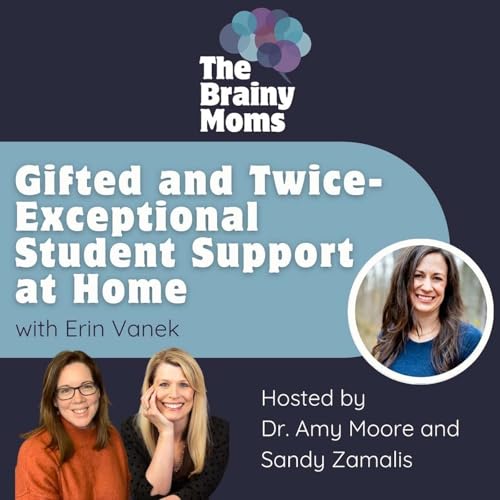
The Brainy Moms
Failed to add items
Sorry, we are unable to add the item because your shopping cart is already at capacity.
Add to basket failed.
Please try again later
Add to Wish List failed.
Please try again later
Remove from Wish List failed.
Please try again later
Follow podcast failed
Unfollow podcast failed
-
Narrated by:
-
By:
-
Dr. Amy Moore
About this listen
The Brainy Moms is a parenting podcast hosted by cognitive psychologist Dr. Amy Moore and Sandy Zamalis. The weekly show features conversations about parenting, psychology, child development, education, homeschooling, neuroscience, and faith with practical tips to help parents navigate the ups and downs of parenthood. We're helping moms (and dads) get smarter...one episode at a time! Find us at www.TheBrainyMoms.com and on social media @TheBrainyMoms
© 2026 The Brainy Moms
Episodes
-
 Feb 24 202646 mins
Feb 24 202646 minsFailed to add items
Sorry, we are unable to add the item because your shopping cart is already at capacity.Add to basket failed.
Please try again laterAdd to Wish List failed.
Please try again laterRemove from Wish List failed.
Please try again laterFollow podcast failed
Unfollow podcast failed
-
 48 mins
48 minsFailed to add items
Sorry, we are unable to add the item because your shopping cart is already at capacity.Add to basket failed.
Please try again laterAdd to Wish List failed.
Please try again laterRemove from Wish List failed.
Please try again laterFollow podcast failed
Unfollow podcast failed
-
 1 hr and 17 mins
1 hr and 17 minsFailed to add items
Sorry, we are unable to add the item because your shopping cart is already at capacity.Add to basket failed.
Please try again laterAdd to Wish List failed.
Please try again laterRemove from Wish List failed.
Please try again laterFollow podcast failed
Unfollow podcast failed
No reviews yet
In the spirit of reconciliation, Audible acknowledges the Traditional Custodians of country throughout Australia and their connections to land, sea and community. We pay our respect to their elders past and present and extend that respect to all Aboriginal and Torres Strait Islander peoples today.


